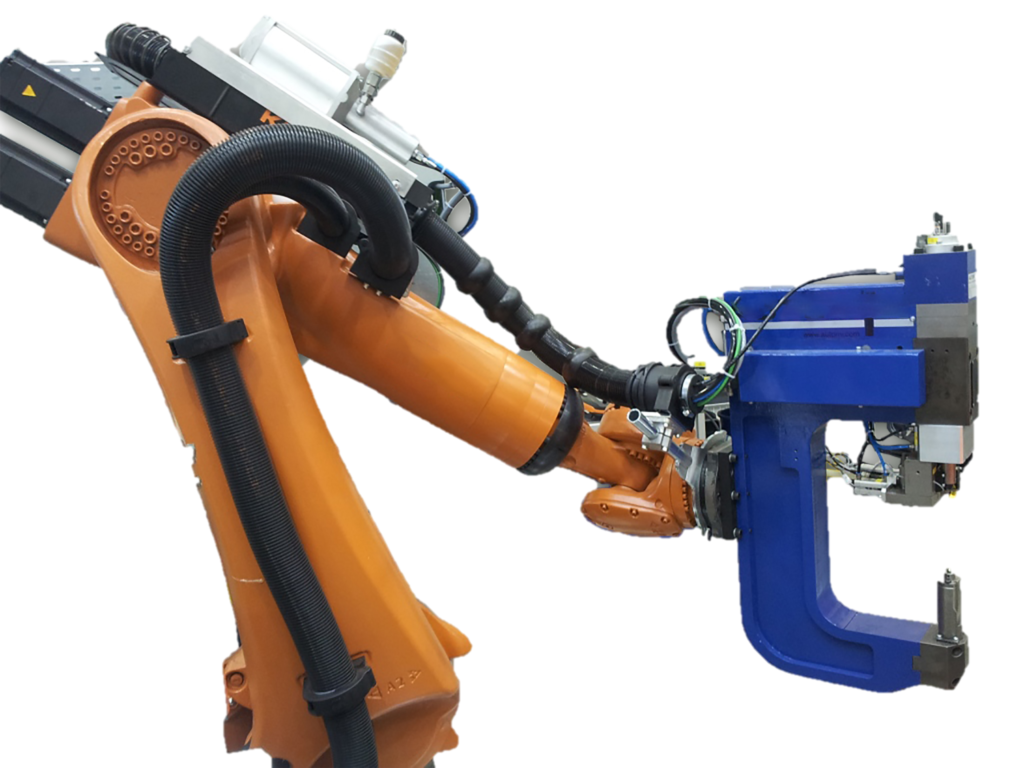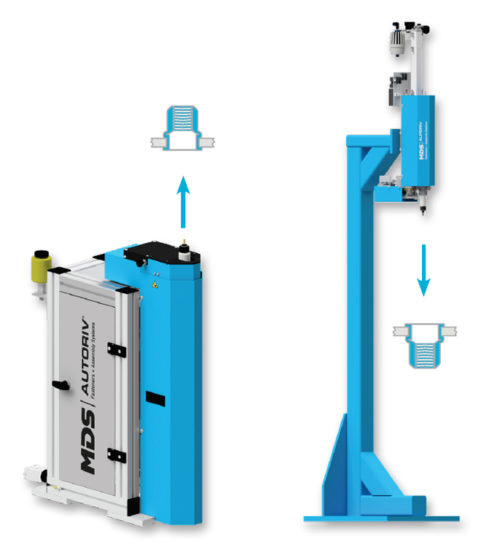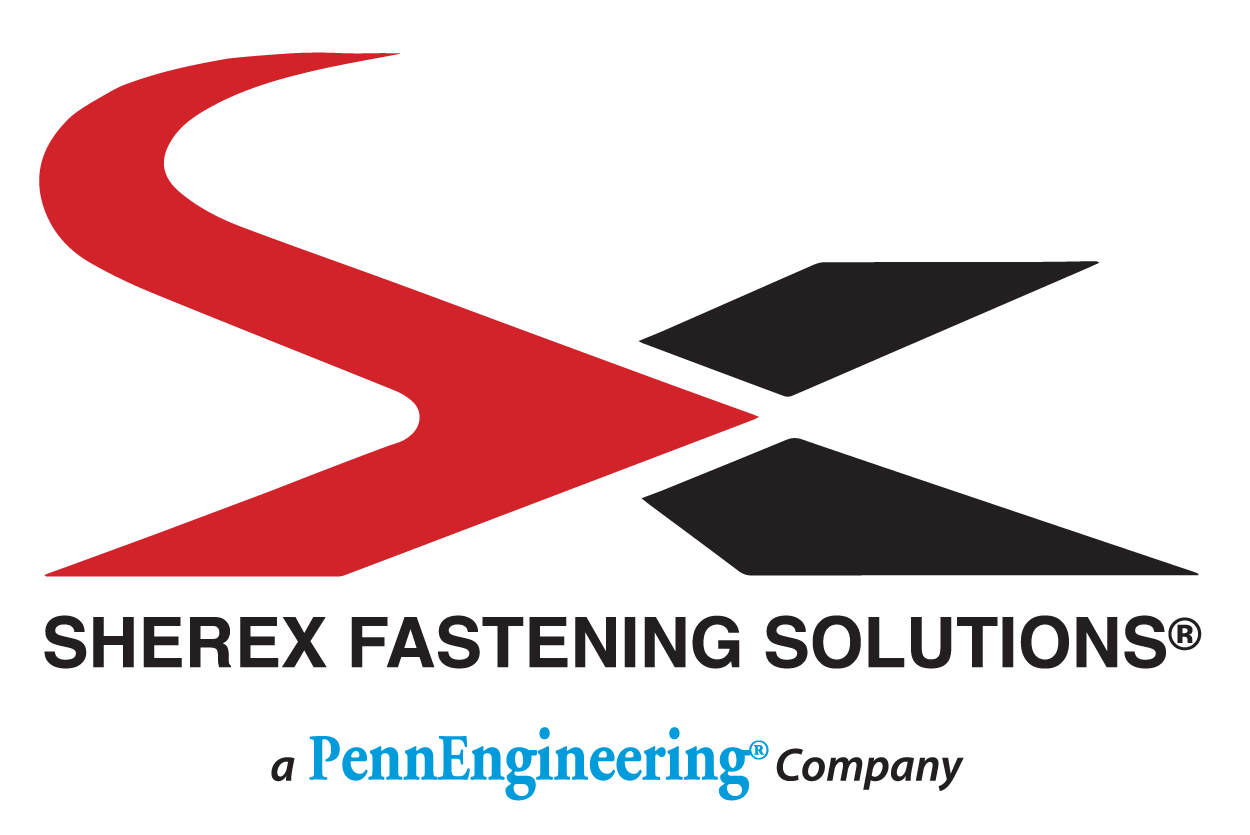There are variety of ways to install fasteners like rivet nuts or clinch nuts into workpieces. Hand tools — manual, hydro-pneumatic, or pneumatic, are popular options and are used in low and high volume assemblies.
Automation is another option. Fastener automation systems usually consists of a robotic arm or robotic station where fasteners are automatically installed into the workpiece. In some cases, this removes the need for a human to be involved, letting the automation system handle the work itself. Sounds great, but let’s take a look at when using these systems make a lot of sense, and the advantages of having an automated system.
Large Quantity Installations
Automated fastening systems are typically used for high volume installations, on an assembly line for example. These systems install fasteners faster than manual assembly, and it might not take much human operation besides initial set up. Some automation systems even have a mobile arm that grabs the work piece and installs the rivet nut or clinch nut. Either way, the cycle time from part installation to part installation on an automated fastening system are faster than installations with spin-pull hand tools, which are also used in high volume installations, by at least a 2 to 3 seconds. Multiply that over the course of an hour and your throughput could increase considerably.

Automation Fastener System with Mobile Arm
24/7 Installations
US manufacturers are BUSY. Demand for everything from cars, to exercise machines, to refrigerators, to furniture is through the roof. Increase in demand means time is money. The quicker things leave the plant, the more money to be made. This is where automation comes in. Automated fastening systems can run 24/7 without the need for humans. Once set up properly, and enough fasteners and materials are in place, the fastening systems can be self-sufficient. As long as there are parts and a conveyor system, the system could run non-stop.
Quality

MDS A240-BI Stationary Robotic Workstation installs rivet nuts
For as intelligent as mankind is, we’re also clumsy. Robots, on the other hand, are precise. Automated fastening systems install parts to the exact force and at the exact location every time. Some systems also come with process monitoring, which can tell if the part has been installed properly based on a variety of factors, including pulling force of the system and material thickness of the application. If an installation is improper, a stop tool function is an option to ensure no more unsatisfactory installations take place which would avoid rework and material waste. This also prevents potentially dozens or hundreds of unsatisfactory installations from taking place.
ROI
This is the most important factor in any decision about automation. What’s the cost? And will I make my money back? It’s no secret that automation is more expensive than a traditional spin-pull, line ready tool like the FLEX-5. But factor in increased quality of installations, increased throughput, and ability for the fastening system to be more efficient and able to run without operators, the return on investment could be substantial over time if you factor in labor costs. Maintenance on automation systems will occur over time, and it might be recommended to have yearly scheduled maintenance on the systems to ensure efficient performance, but during that time there could potentially be no rework, no waste, and outstanding quality at no operator expense.
Sherex has a wide range of fastening installation systems that can satisfy a wide range of high volume rivet nut and clinch nut installations. The Sherex Engineering Team can help determine the best tooling option at your facility, including if automation is an viable option. Contact us to learn more about fastener automation and how it could be a solution at your location.





